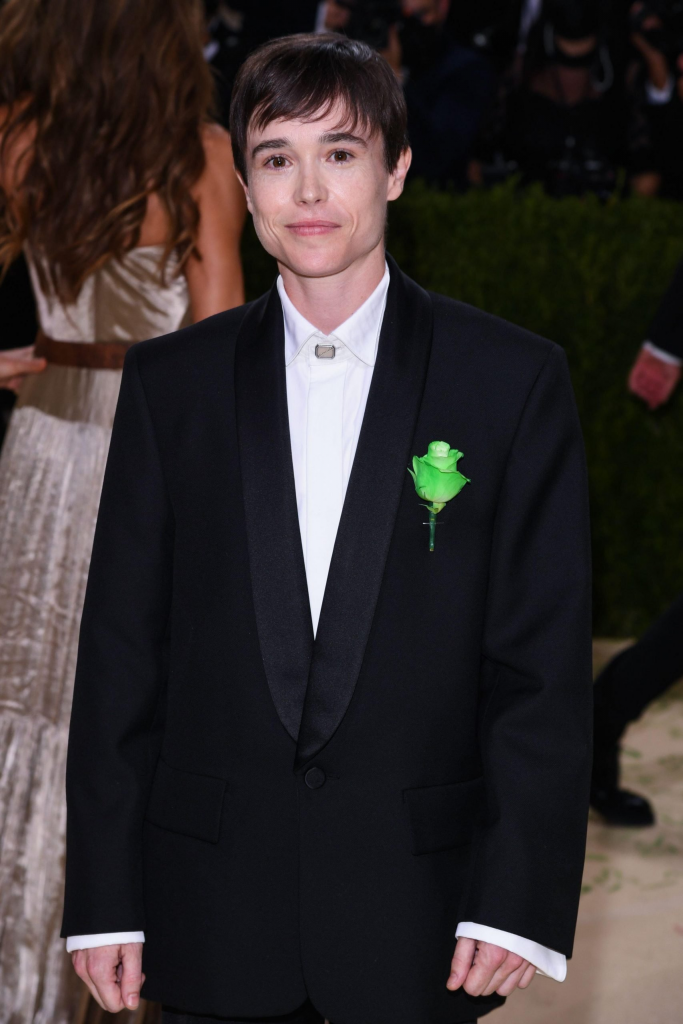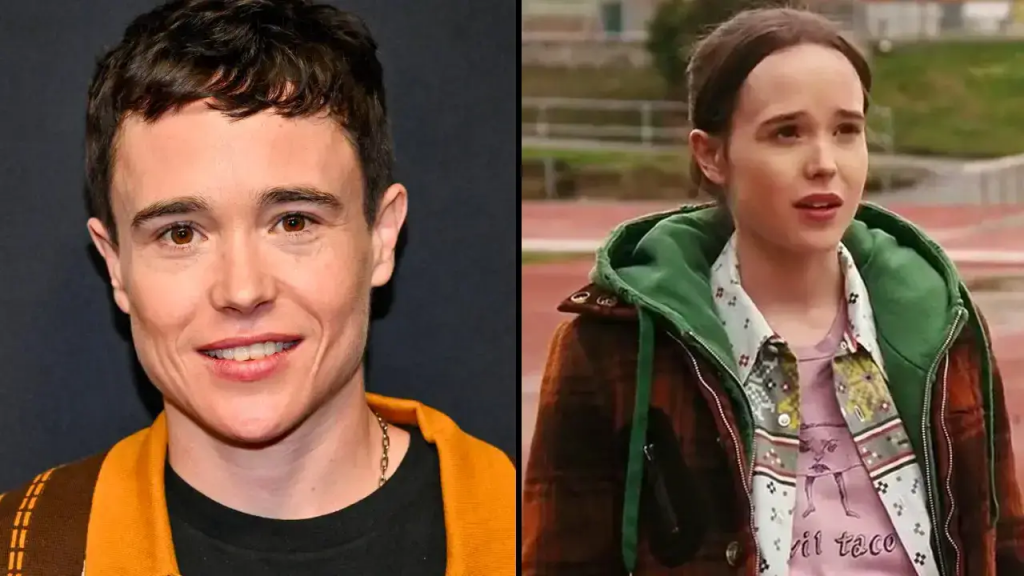Elliot Page, the acclaimed actor known for his powerful performances in Inception, X-Men: The Last Stand, and The Umbrella Academy, has opened up about a moment from his past that he now views through a more critical lens. Reflecting on his breakout role in the 2007 indie hit Juno, Page expressed regret over a homophobic joke his character made, acknowledging its impact on LGBTQ representation in film.
The joke in question occurs when Juno MacGuff, played by Page, reacts to a name suggestion for her unborn baby. When Mark (Jason Bateman) mentions his wife likes the name “Madison,” Juno retorts, “Madison? Wait, hold on… Isn’t that like a little, gay?” At the time, the line was played for laughs, reflecting the casual humor prevalent in early 2000s comedies. But now, Page sees it as a missed opportunity to challenge stereotypes rather than perpetuate them.

Revisiting the Past with a New Perspective
Looking back, Page admits the joke didn’t fully register with him at the time. In a recent interview with Bustle, he explained, “So many movies I loved as a kid are just rampant with homophobia and transphobia and biphobia, and I’m not excusing it by any means.” His words reflect a deeper awareness of how seemingly harmless jokes can contribute to societal biases, especially in influential mediums like film.
Page’s reflection isn’t just about a single line in a movie; it’s about recognizing the cultural impact of language and humor. In 2007, mainstream films often included casual homophobic remarks, normalized under the guise of humor. But Page’s evolving understanding speaks to the importance of growth and accountability, particularly for public figures.

As an outspoken LGBTQ activist, Page acknowledges the weight his words and actions carry. “It really hurts the industry and it really hurts film. We need more stories. We need more representation. We need more points of view,” he stated. This isn’t just a critique of his own past but a call for change within the industry as a whole.
A Journey of Self-Discovery and Activism
Elliot Page’s career has been marked not just by his talent but by his courage to live authentically. In 2014, Page publicly came out as gay while still presenting as female. Then, in 2020, he came out as a transgender man, revealing his new name and pronouns. His announcement was heartfelt and deeply personal:
“Hi friends, I want to share with you that I am trans, my pronouns are he/they and my name is Elliot. I feel lucky to be writing this. To be here. To have arrived at this place in my life. I love that I am trans. And I love that I am queer. And the more I hold myself close and fully embrace who I am, the more I dream, the more my heart grows and the more I thrive.”

This moment was not just a revelation but a powerful statement of self-acceptance and pride. Page’s openness about his identity has made him a beacon of hope for countless LGBTQ individuals worldwide. His advocacy extends beyond words, as he actively works to challenge stereotypes and promote inclusivity in Hollywood.
Pageboy: A Memoir of Identity, Love, and Growth
Page’s journey of self-discovery is explored in depth in his memoir Pageboy, published in 2023. In the book, he candidly discusses his struggles with shame and self-acceptance, writing, “Shame had been drilled into my bones since I was my tiniest self, and I struggled to rid my body of that old toxic and erosive marrow.”
The memoir is more than just a reflection on his identity; it’s an exploration of love, acceptance, and resilience. Page shares intimate stories of his romantic relationships, including a complex connection with actress Kate Mara. He writes, “I think my relationship, or whatever you want to call it with Kate, very much encapsulates a certain dynamic that I consistently found myself in, which was falling for people that… weren’t fully available.”
This raw honesty about love and longing resonates deeply, showing a vulnerable side of Page that fans rarely see. His willingness to share his emotional journey not only humanizes him but also normalizes the experiences of many in the LGBTQ community.
The Importance of Representation in Film
Page’s reflection on the joke in Juno highlights a larger issue within the film industry: the lack of authentic LGBTQ representation. In the early 2000s, movies frequently used homophobic humor without considering the harm it caused. These jokes, though seemingly innocuous, reinforced stereotypes and contributed to societal prejudices.
Page’s regret over the joke is a powerful acknowledgment of his growth and evolving perspective. By speaking out, he challenges not only his past but also an industry still grappling with inclusive storytelling. His call for more diverse narratives is a reminder that representation matters – not just in who is on screen but in how stories are told.

Navigating Hollywood as a Trans Actor
Since coming out as transgender, Page has continued his successful career, notably as Viktor Hargreeves in Netflix’s The Umbrella Academy. The show’s seamless integration of his transition into the storyline was groundbreaking, offering an authentic portrayal of a trans character without sensationalism.
This representation was meaningful not just for Page but for audiences worldwide. It demonstrated that trans stories could be told with respect, nuance, and complexity. Page’s performance was met with praise, solidifying his place as a trailblazer in Hollywood.
Yet, his journey hasn’t been without challenges. Page has been vocal about the discrimination and transphobia he has faced within the industry. His advocacy isn’t just about increasing visibility but about creating a safer, more inclusive environment for future generations of LGBTQ actors.